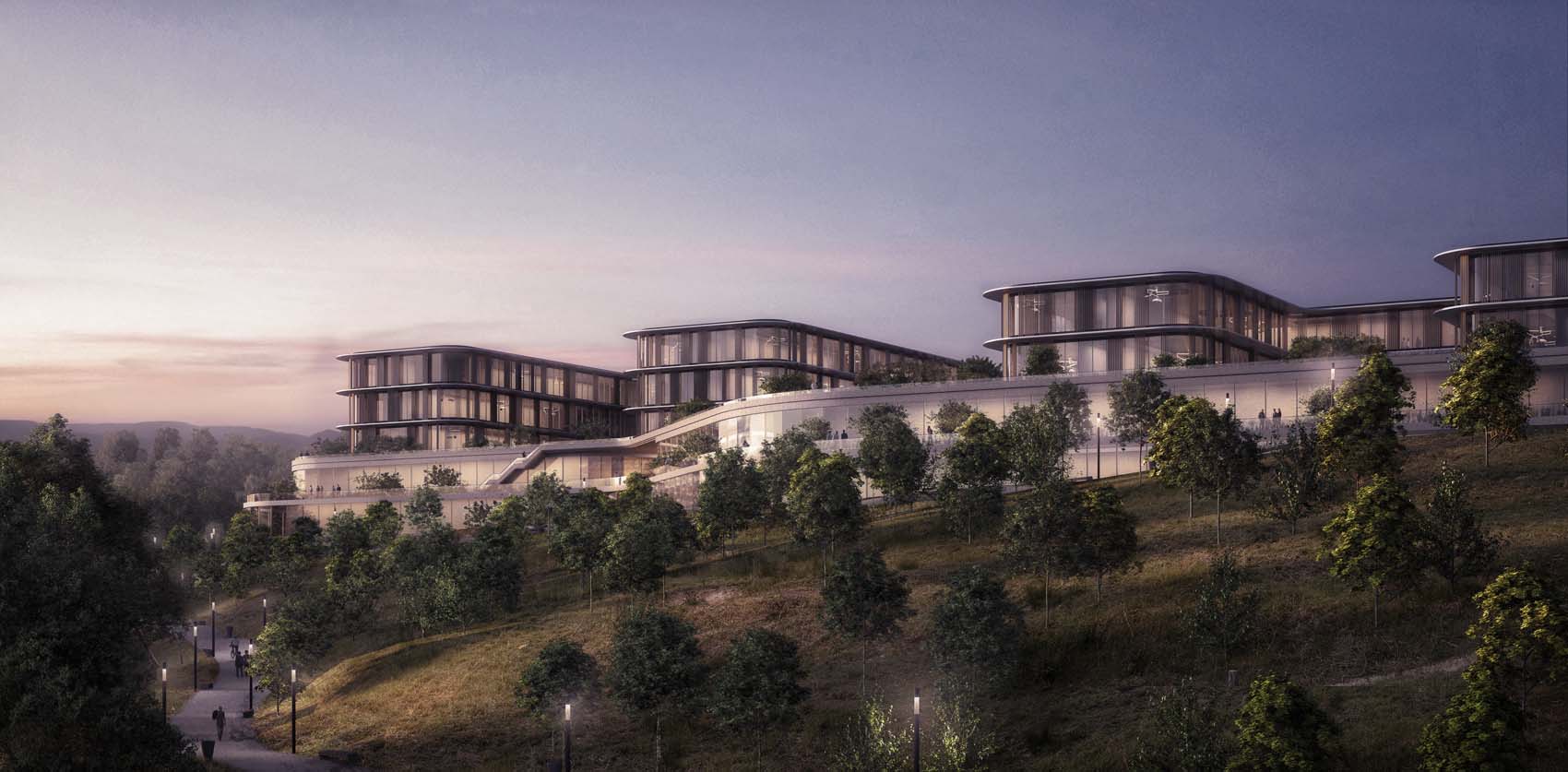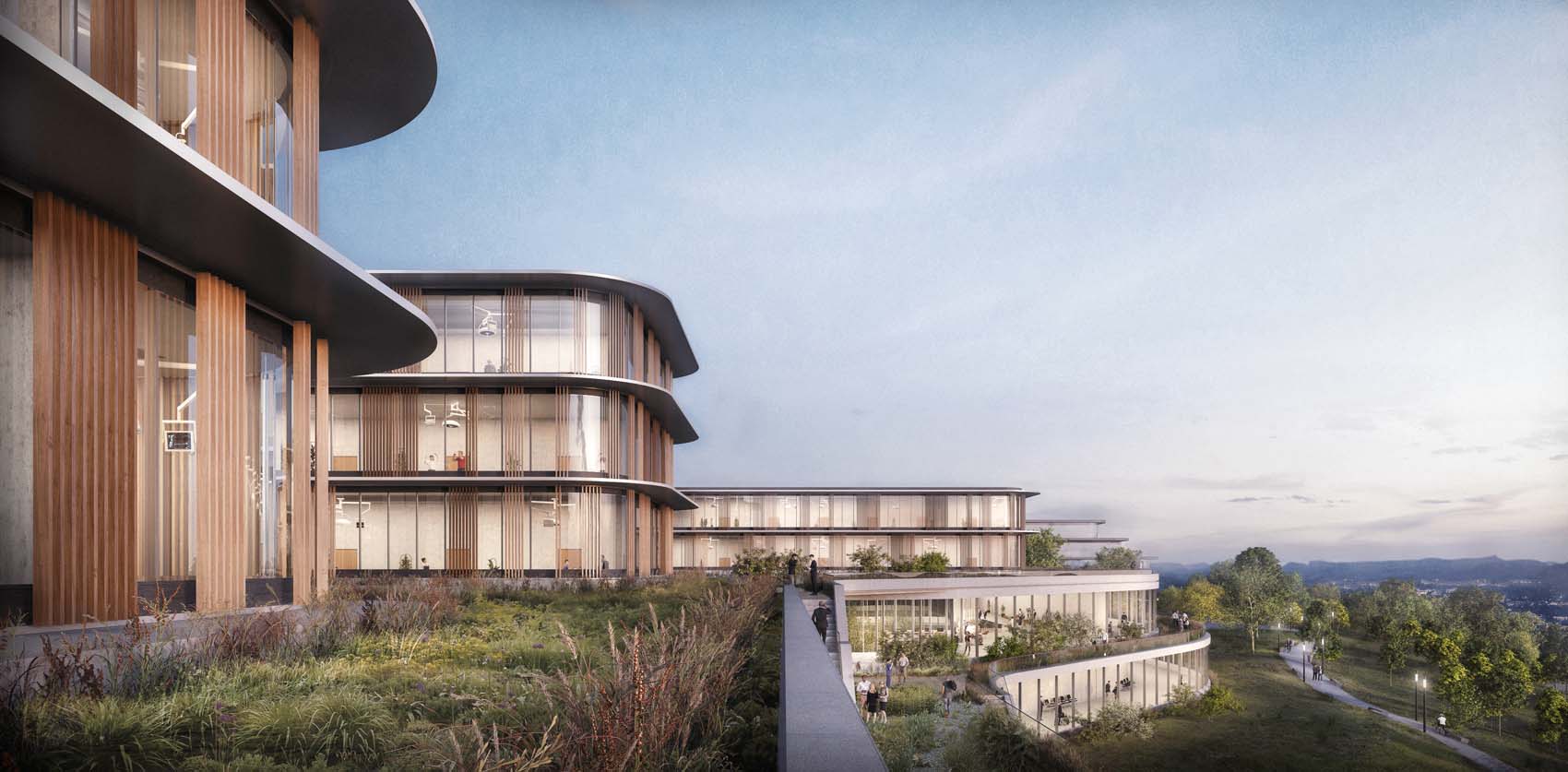University Hospital Tuebingen
Hascher Jehle Architecture

The University Hospital in Tübingen is planning a major new building that will revolutionize the existing hospital. The New Medical Clinic (NMK), designed by HASCHER JEHLE Architektur in cooperation with the Schweitzer group of architects, will be realized in two construction phases. This article takes a look at the innovative project that paves the way for a central core hospital on the Schnarrenberg and drives the development of the university hospital.
The joint construction as the first construction phase
The first construction phase of the NMK, also known as "Gelenkbau", will act as a link between the CRONA clinics in the north and the existing medical clinic in the east. This step-by-step implementation of the master plan aims to merge the currently isolated individual clinics into a central core clinic. The NMK will be developed together with the already planned teaching and learning center of the medical faculty, the LLZ, to ensure seamless integration and functional connection.

The architectural design
The cubature of the new building is characterized by a terraced, green building base on which two U-shaped structures rest that house the nursing stations. The complex follows the slope harmoniously and uses the natural conditions of the place for the design concept. The bed houses are staggered along the edge of the slope to the north-west and offer a breathtaking view over the old town of Tübingen and the Neckar valley. The continuation of the main line of the CRONA clinics and the spacious terraces allow an unobstructed view of the city of Tübingen.
The success of the competition and future implementation
The NMK was planned in close cooperation with the renowned architectural office HASCHER JEHLE Architektur. The unanimous decision of the judges confirmed the consistent implementation of the concept of compression and functional paths. Hospital manager Michael Bamberg emphasized the importance of the NMK as a further building block for the reorganization and further development of the University Hospital in Tübingen. The start of construction of the 300 million euro project is planned for 2027, with completion in 2032. The innovative project will combine the existing individual clinics into a central core clinic and guarantee modern, high-quality medical care.
